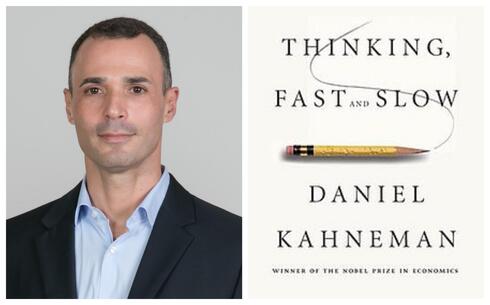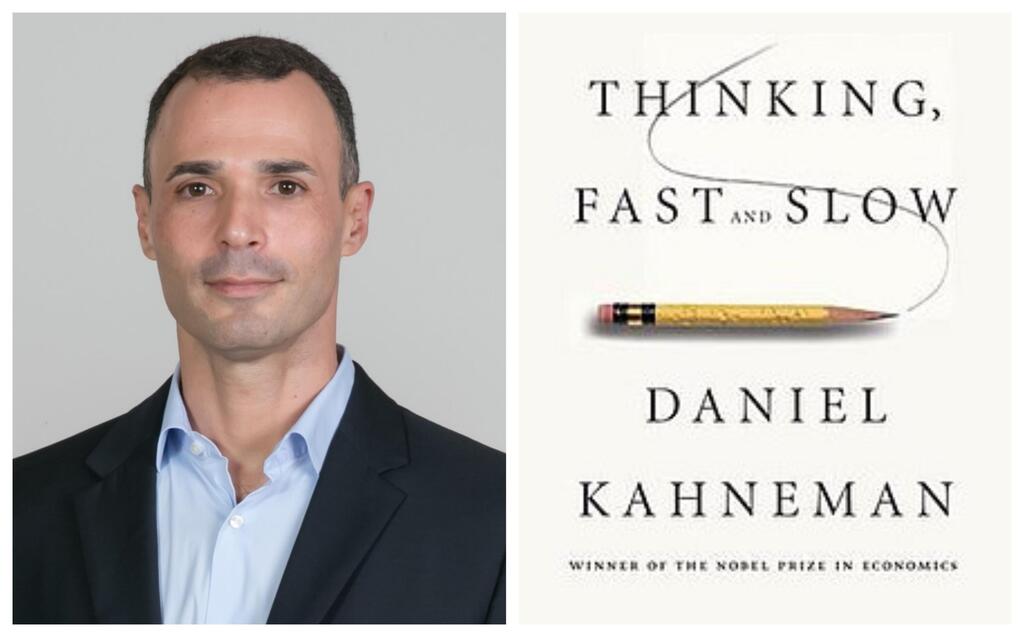
BiblioTech
CTech’s Book Review: Assessing our ways of thinking in life
Dagi Ben-Noon, CEO at Inspira Technologies, has joined CTech to share a review of "Thinking, Fast and Slow” by Daniel Kahneman.
Dagi Ben-Noon, CEO at Inspira Technologies, a medical device company specializing in respiratory care solutions. He has joined CTech to share a review of "Thinking, Fast and Slow” by Daniel Kahneman.
Title: "Thinking, Fast and Slow”
Author: Daniel Kahneman
Format: Book
Where: Home
Summary:
In the book “Thinking, Fast and Slow”, Daniel Kahneman researches and analyzes two systems of thinking. The first is the 'slow thinking' system - thinking that requires concentration, in which one exerts effort. This type of thinking is the opposite of an "off-the-cuff" response.
The second system is 'automatic thinking', this type of thinking is often fast and intuitive, one we do instinctively in the course of everyday life.
The book highlights the various misconceptions we have on the concept of thinking, and how they affect our choices. Kahneman focuses on various studies that give you, as a reader, an understanding of the mechanisms that influence you and lead you to make specific decisions, and once you are aware of them - you are able to choose how to react and how to conduct yourself.
Important themes:
1. How do we relate to the actions we take routinely?
The book suggests that we must carefully examine every decision, whether we end up changing it or not. We must always think of our actions as active choices. A decision is not only related to change - staying on the same track is also an active choice.
2. How do we change our outlook and fear of change?
When faced with an irreversible and fateful decision, we often feel fear and reluctance to make it. However, this is a deception. When we choose to continue in our routine and avoid change, it might not seem scary because it's familiar to us - but what we don't understand is that this is just as fateful a decision. We don't understand fateful decisions just as well - we don't understand active choice just as well.
3. For the managers among us, Kahneman also suggests the practice of 'pre-mortem' before making fateful decisions, inviting the key figures to a short meeting and discussing the decision in the following way.
According to Kahneman: “Imagine that a year has passed and we have implemented the plan set before us. The result was disastrous. Please spend 5-10 minutes writing a short chain of events that led to the disaster.” The pre-mortem has two main advantages: it overcomes groupthink which influences teams to think as one, and allows professionals to creatively identify future failures
What I’ve learned:
“Thinking, Fast and Slow” is a fascinating book about intuitive thinking, logical and hard thinking, and the influence of the way information is presented on our choices.
Since reading the book, back when I was COO at Nano Dimension, I examine my decisions and think about them differently. Today as the CEO of Inspira Technologies, I approach almost every aspect of my work with a much higher awareness of the various biases and the many flaws of thinking: From interviewing, through discussions with our development team, to analyzing the findings of an experiment of our products.
Critiques:
Unlike many books on management, here I could find myself in almost every example that Kahneman brings up - which made me think about myself and my choices as a manager.
Who should read this book:
To all managers at all levels of management, the book can give a different perspective on the situation and improve the decision-making process.














